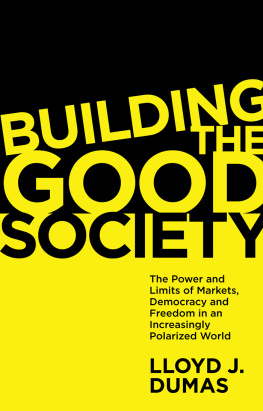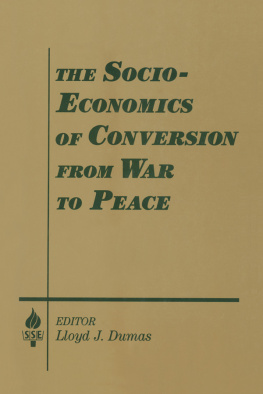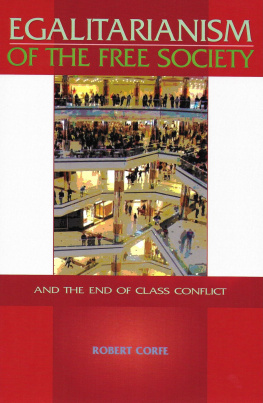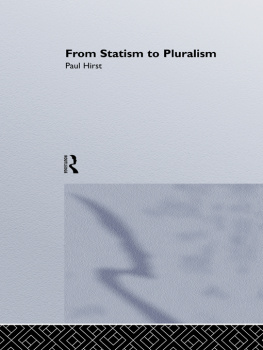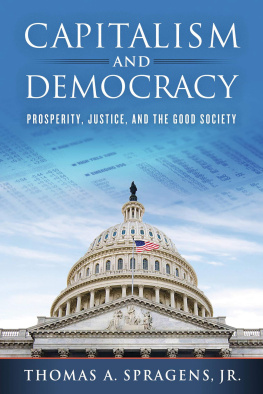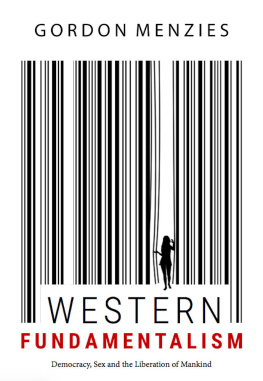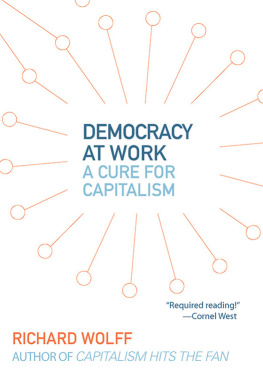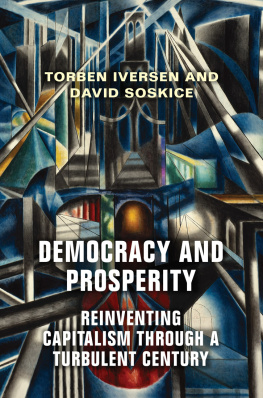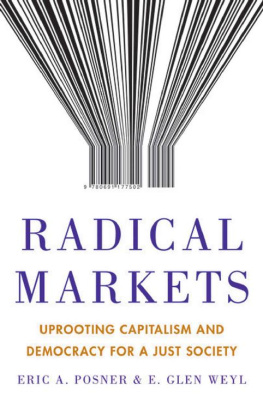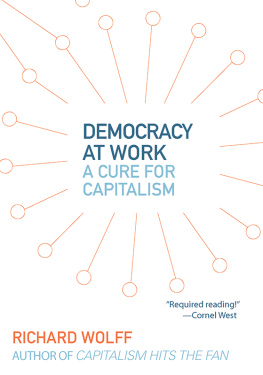About the Author
Lloyd J. Dumas is Professor of Political Economy, Economics and Public Policy at the University of Texas at Dallas. Dumas' eight books include The Peacekeeping Economy: Using Economic Relationships to Build a More Peaceful, Prosperous, and Secure World (Yale University) and The Technology Trap: Where Human Error and Malevolence Meet Powerful Technologies (Praeger). He has published over 120 articles in 11 languages in books and journals of seven disciplines, and periodicals such as New York Times and International Herald Tribune. He has been quoted in Business Week, the Financial Times, and Barron's, and he has appeared on more than 300 TV and radio programs in the US and around the world.
Acknowledgments
In one way or another, the elements of the various analytical essays in this book are the product of a decades-long process of learning, thinking, and teaching. In any enterprise of this kind, there are many people to thank for their contribution, stimulation, and encouragement. As my teacher, colleague, and friend, Seymour Melman was always a source of encouragement to take on challenging problems, think broadly, and not be constrained by the boundaries of the conventional wisdom. Many long conversations with my friend and colleague Bob Karasek, after we finished teaching our night classes at Columbia University, taught me to think much more deeply about the impact of the work environment on worker's lives. Talking to and reading the work of the Albert Einstein Institution's leader Gene Sharp convinced me of the potential power of civil disobedience and other forms of nonviolent resistance. One Sunday morning in Northern California, my friend and minister of the United Church of Christ, Carolyn Roberts, gave an inspired sermon that deepened my understanding of the social and psychological impact of language, particularly sexist language. And many discussions with international lawyer Burns Weston helped me to more fully understand the role and importance of laws and norms, even in an international realm where there is no overriding political authority to enforce them.
From childhood, my parents, Edith and Marcel Dumas, were always a source of encouragement. They taught me the importance of empathy and gave me the confidence that I had something to say. Many old and new friends motivated and encouraged this work, among them Kenneth Boulding, Peggy Herrman, Janine Wedel, Dana Dunn, Warren Davis, Yolanda Eisenstein, Jonas Bunte, Anthony Cummings, Magnus Kpakol, Brett Cease, Julia Besser Cease, Alba Halili, Katie Sadorro, Antoinette White, Abigail Durden, and Nick Wolterman, my always supportive and enthusiastic editor at Emerald. My intellectual partner and soul mate, Teresa Nelson Dumas, contributed to this project in more ways than I can say. Her sharp intellect, good heart, and gentle touch helped to shape nearly every aspect of this work. And her love and support carried me through one of the most difficult and challenging times of my life.
Notes
1 Securing Political Freedom and Sustainable Democracy
of the shocking stories of these three charismatic cult leaders can be found in Dumas, Lloyd J., Lethal Arrogance: Human Fallibility and Dangerous Technologies (New York, NY: St. Martin's Press, 1999), pp. 203210.
Senator Lloyd Bentsen of Texas is probably responsible for the term astroturf NGOs, having commented about them in the 1980s, that he knew the difference between astroturf and real grass.
).
See Note 3, p. 2.
).
, accessed on November 26, 2016).
, accessed on November 26, 2016).
Madison, James, Federalist Paper #51, as in Frederick Quinn, editor, The Federalist Papers Reader (Washington, DC: Seven Locks Press, 1993), pp. 131136.
, would provide filters that would refine the will of the people to the general benefit of society. See The Federalist Papers.
Packard, Vance, The Hidden Persuaders (New York, NY: Ig Publishing, 2007, originally published by David McKay Publishers, Inc. in 1957).
See Note 10, p. 214.
See Note 10, p. 187.
Eisenhower, Dwight D., Farewell Radio and Television Address to the American People, delivered from the President's Office (8:30 p.m., January 17, 1961), section IV.
Nelson, Dr Teresa D., in conversation with the author.
Zakaria, Fareed, The Rise of Illiberal Democracy, Foreign Affairs (November/December 1997).
See Note 10, p. 155.
2 The Market System: Achieving Equity and Material Abundance
See Dumas, Lloyd J., The Overburdened Economy: Uncovering the Causes of Chronic Unemployment, Inflation and National Decline (Berkeley, CA: University of California Press, 1986), pp. 5357.
Akerlof, George A. and Shiller, Robert J., Phishing for Phools: The Economics of Manipulation and Deception (Princeton, NJ: Princeton University Press, 2015), pp. vii and xii.
, accessed on December 30, 2016) Mortgage-backed securities (MBS) are debt obligations that represent claims to the cash flows from pools of mortgage loans, most commonly on residential property. Mortgage loans are purchased from banks, mortgage companies, and other originators and then assembled into pools by a governmental, quasi-governmental, or private entity. The entity then issues securities that represent claims on the principal and interest payments made by borrowers on the loans in the pool, a process known as securitization.
This concept is discussed in Dumas, Lloyd J., The Overburdened Economy: Uncovering the Causes of Chronic Unemployment, Inflation and National Decline (Berkeley, CA: University of California Press, 1986).
Marketing in American Life (Champaign, IL: University of Illinois Press, 2003), p. 1, as cited by Richard York in a book review, Manufacturing the Love of Possession (Other News, distributed via email by journalist Roberto Savio; soros@topica.email-publisher.com, February 2, 2004).
, accessed on January 3, 2017). In 1995, the United Nations defined absolute poverty as a condition characterised by severe deprivation of basic human needs, including food, safe drinking water, sanitation facilities, health, shelter, education and information. It depends not only on income but also on access to services. Relative poverty refers to having a minimal standard of living as compared to the minimum standard of living common in the particular society at hand, not necessarily as compared to minimum people require to survive.
Weber, Max, The Protestant Ethic and the Spirit of Capitalism (Translated by Parsons, Talcott; New York, NY: Charles Scribner's Sons, 1958).
See Note 1, pp. 4144.
The GlassSteagall Act was repealed in 1999 to allow any given financial institution to engage in a wide range of financial activities going well beyond the purpose were originally formed to serve.
Louis O. Kelso was one of the founders of the ESOP movement. See for example, Kelso, Louis and Adler, Mortimer, The Capitalist Manifesto (Westport, CT: Greenwood Press, 1975).
Melman, Seymour, After Capitalism: From Managerialism to Workplace Democracy (New York, NY: Alfred A. Knopf, 2001), p. 266.
Ellerman, David P., ESOPs and CO_OPs: Worker Capitalism and Worker Democracy, Labor Research Review, no. 5 (Spring 1985), as cited in Note 11, p. 263.
See Note 12, p. 264.
See Note 13.
The priest, Don Jos Maria Arrizmendiarrieta, and a small group of students he had helped to train, set out the basic principles by which the co-op was to operate. See Note 11, p. 352.
, accessed on January 6, 2017, p. 4.
See Note 11, p. 355.

